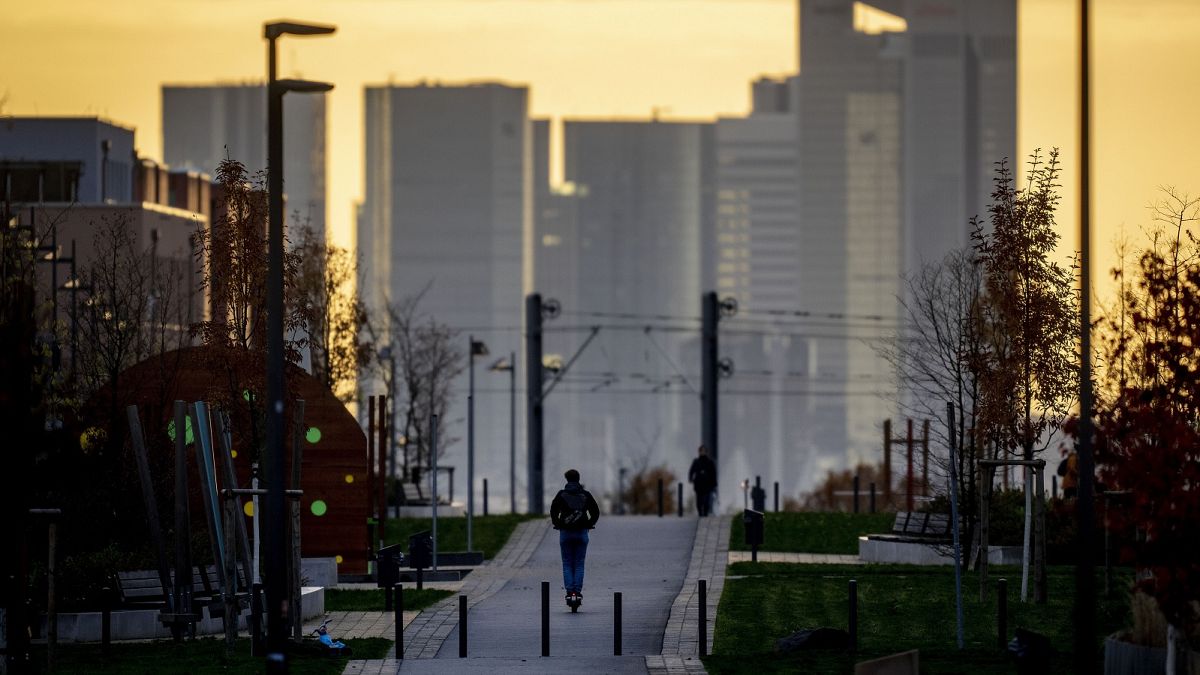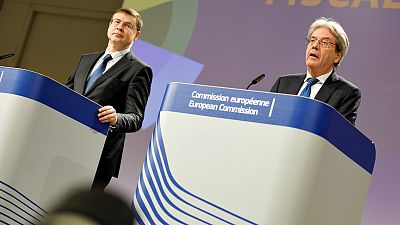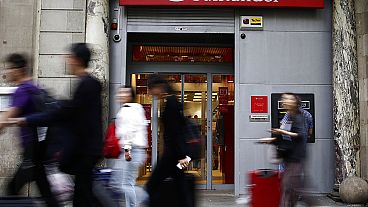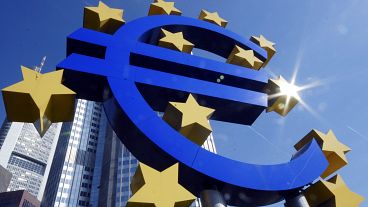The European Commission warns uncertainty is still elevated, with the economy dependent on Russia's war in Ukraine and tight energy markets.
The European Union's economy is set to "narrowly" avoid a much-dreaded recession this year, as inflation eases and gas prices continue their steep drop, paving the way for better-than-expected economic performance, the European Commission has said in its latest forecast.
The report, released on Monday morning, offers a glimmer of good news amid a still extremely uncertain and challenging landscape that remains intrinsically dependent on what step Russia takes next in its brutal invasion of Ukraine, which is nearing its one-year anniversary.
Still, the European Commission is able to project the EU as a whole will see a growth rate of 0.8% in 2023 – up from 0.3% in the previous forecast.
The eurozone will meanwhile expand by 0.9% – up from the 0.3% estimated in autumn.
"Better than expected doesn't mean good and the outlook is of course policy-dependent," said Paolo Gentiloni, European Commissioner for the economy, while presenting the forecast.
"Europeans still face a difficult period ahead, with growth still expected to (be) slow and inflation set to relinquish its grip on purchasing power only gradually."
A technical recession is defined as two-quarters of economic contraction, something that might still happen in some EU countries even if the final number for 2023 ends up being positive.
Among the 27 member states, Sweden is the only one that shows a negative number for this year (–0.8%) while the rest present limited but positive growth.
Germany and Italy, two countries that were highly dependent on Russian fossil fuels and widely expected to fall into a painful recession, have projected rates of 0.2% and 0.8%, respectively.
For Germany, this represents a "significant turnaround," Gentiloni said, given the industrial heavyweight had been projected a –0.6% drop in the previous report.
Moreover, France will grow by 0.6% while the Spanish economy will increase by 1.4% across 2023.
Ireland stays the best-performing economy, with a stunning 4.9% rate, largely driven by the investment of foreign multinationals.
The European Commission believes the bloc has turned the corner on record-breaking inflation and prices will maintain the downward trend that began late last year when the closely-watched indicator returned to the single-digit territory.
The development was linked to a steady decline in Europe's gas prices resulting from coordinated power savings, mild weather and diversification from suppliers.
The Title Transfer Facility (TTF), Europe's main hub for gas trading, closed on Friday at nearly €54 per megawatt-hour, levels not seen since December 2021.
Inflation in the eurozone is now projected to fall to 5.6% in 2023 and to 2.5% in 2024, bringing the figure closer to the 2% annual target set by the European Central Bank (ECB).
Nevertheless, the executive warns, core inflation, which excludes the volatile prices of energy and foods, has not yet peaked and the weight from high energy bills has not been entirely passed onto consumers.
Inflation will remain "stubbornly high" in eastern European countries, Gentiloni said.
The economy, he noted, is also waiting to feel the full impact of the continued hikes of interest rates introduced by the ECB, which are meant to restrain demand in order to cool inflation.
The European Commission's winter forecast builds on a series of projections that in recent weeks have improved the outlook for the bloc, including those from the International Monetary Fund, J.P. Morgan and Goldman Sachs, and have pushed away the threat of recession.
All the reports have praised the EU's resilience and adaptability in the face of Russia's war in Ukraine and the expensive energy crisis, while underlining the persistent uncertainty across the continent.
Gentiloni said ominous messages of "stagflation, deep recession and blackouts" that dominated last year's economic discourse have been "contradicted by reality."
"Did we decouple from the war? Not at all," Gentiloni said in response to a Euronews question. "The main risk is the war of aggression in Ukraine and the geopolitical tensions."
"What I think we were able to manage is the energy dependence from Russia," he went on. "This was really impressive."



